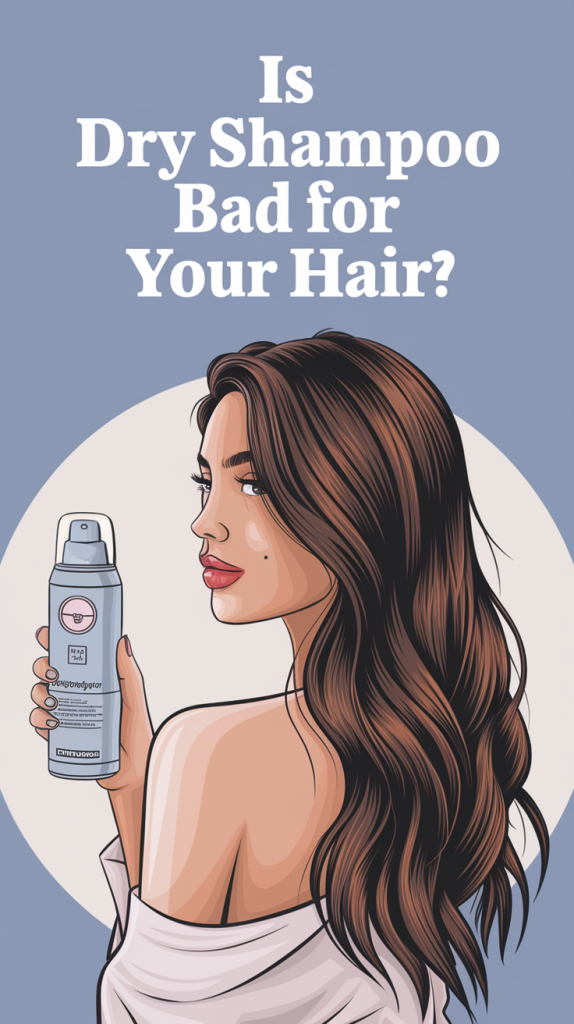Is Dry Shampoo Bad for Your Hair?
As someone who has always juggled a hectic schedule, I know how tempting it is to grab that can of dry shampoo. It’s convenient, quick, and makes your hair look decent in seconds. But as much as I’ve relied on it, I’ve also wondered: Is dry shampoo secretly damaging my hair? In this guide, I’ll break down everything you need to know about dry shampoo, from its potential risks to its proper usage and alternatives, so you can make an informed decision.
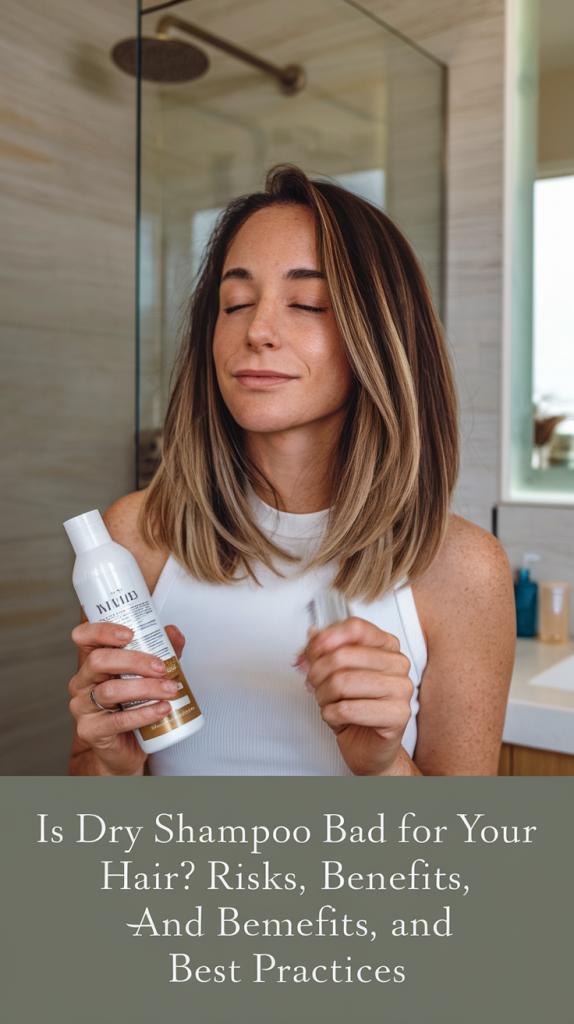
What Is Dry Shampoo and Why Is It Popular?
Dry shampoo is a waterless hair product that absorbs oil from the scalp, giving your hair a freshly washed appearance without the hassle of a full wash. It’s typically made with ingredients like starch, alcohol, or clay, which soak up grease and add volume.
Benefits of Dry Shampoo
- Convenience: Perfect for busy mornings or travel.
- Time-Saving: Cuts down on time spent washing and styling hair.
- Volumizing Effect: Adds texture and lift to limp hair.
- Extends Hairstyle Longevity: Prolongs blowouts or styled looks.
| Benefits | Details |
|---|---|
| Convenience | No need for water or a full hair wash. Great for emergencies. |
| Time-saving | Ideal for those hectic mornings or last-minute plans. |
| Adds volume | Provides texture and lift to flat, lifeless hair. |
| Prolongs hairstyles | Keeps blowouts or styled looks intact for longer periods. |
However, while it seems like a miracle product, there are hidden downsides to relying on dry shampoo too often.
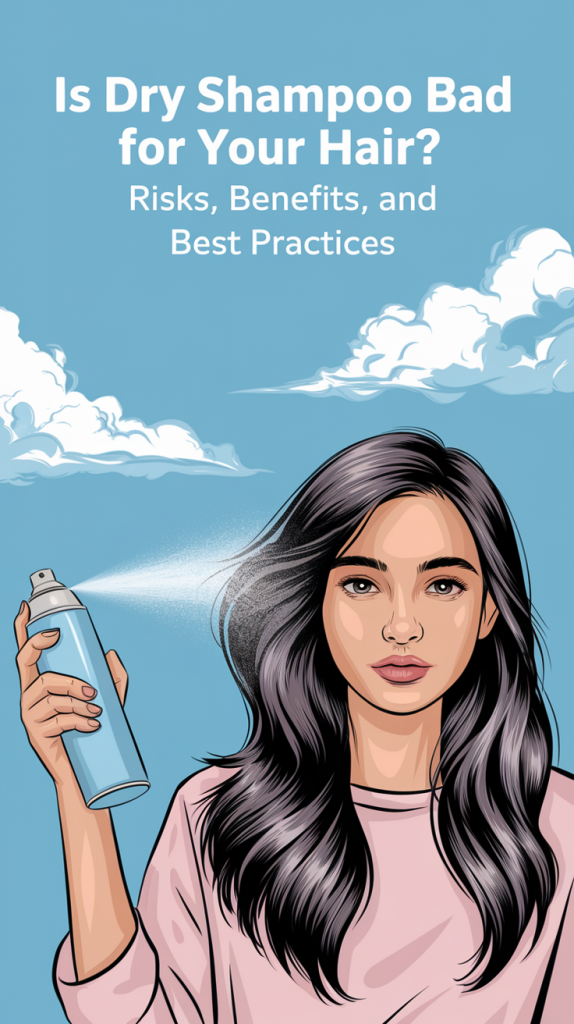
Risks of Overusing Dry Shampoo
Despite its popularity, excessive dry shampoo use can lead to several hair and scalp issues. Here’s what you need to be mindful of:
Scalp Buildup
Frequent use without proper cleansing can cause product accumulation on your scalp. This buildup may:
- Clog hair follicles, leading to scalp conditions like folliculitis.
- Prevent natural oils from nourishing your hair strands.
- Trigger dryness, flaking, or irritation.
Hair Weakness and Breakage
Dry shampoo often contains alcohol, which can dry out your strands. Over time, this dryness can cause brittleness, making hair prone to breakage.
| Risks of Overuse | Effects |
|---|---|
| Scalp buildup | Can clog follicles and lead to irritation or infection. |
| Hair dryness | Alcohol-based formulas strip moisture from strands. |
| Weak hair strands | Increases the risk of brittleness and breakage over time. |
| Scalp imbalance | Can disrupt the microbiome, leading to excess oil production. |
Hair Loss Concerns
Although dry shampoo itself doesn’t directly cause hair loss, the buildup it creates can suffocate follicles, weakening the scalp environment and contributing to shedding over time.
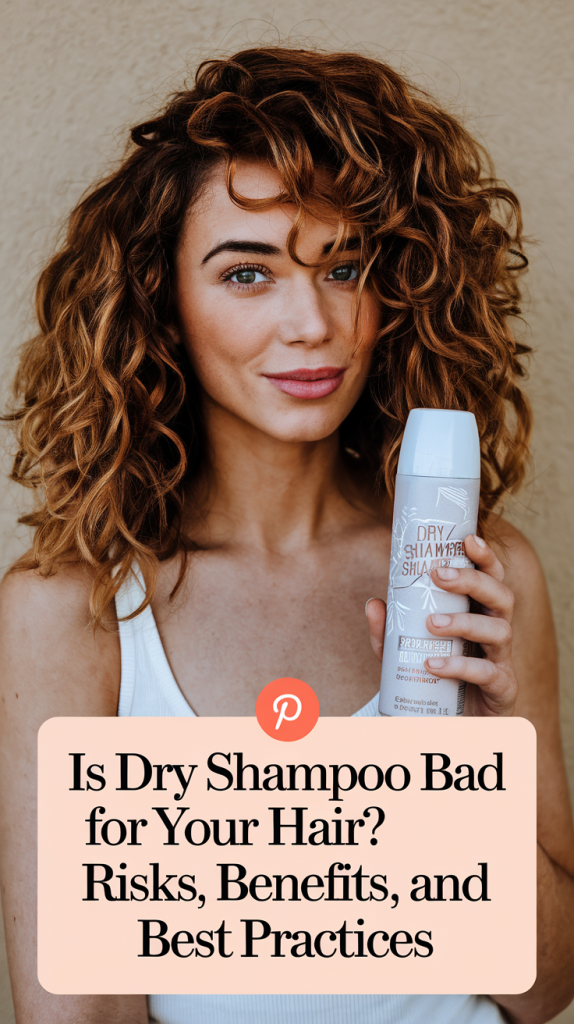
Best Practices for Dry Shampoo Use
To avoid these risks, here’s how to use dry shampoo responsibly:
- Limit Frequency: Use it only once or twice between washes.
- Proper Application: Spray six inches from the scalp, focusing on the roots. Let it sit for a few minutes before brushing it through.
- Regular Washing: Incorporate traditional washing with a gentle shampoo to cleanse the scalp and remove buildup.
- Choose the Right Formula: Opt for alcohol-free or natural dry shampoos, especially if you have sensitive skin or dry hair.
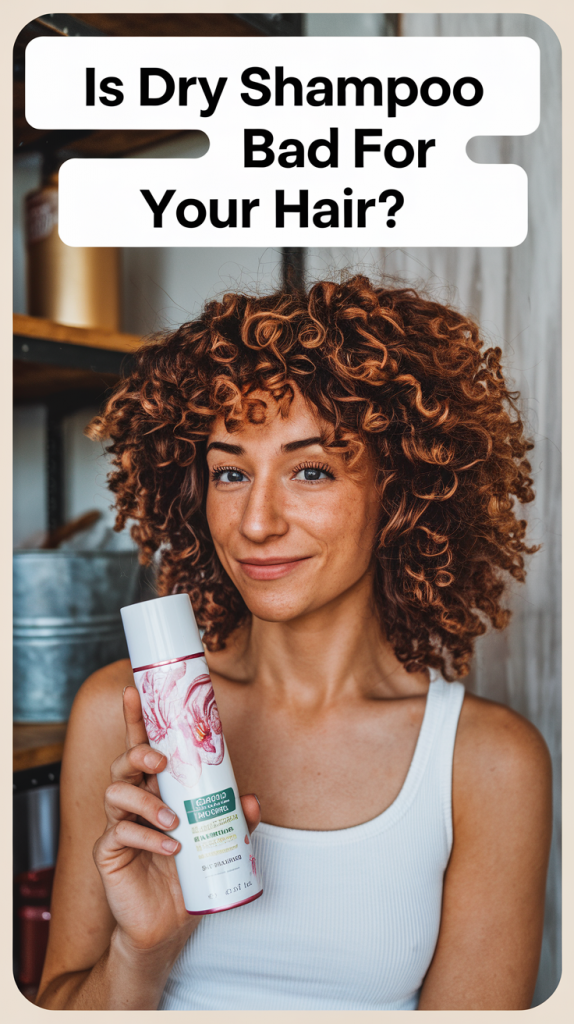
Alternatives to Dry Shampoo
If you’re worried about the effects of dry shampoo, there are other ways to keep your hair looking fresh:
DIY Dry Shampoo
- Use cornstarch, baking soda, or cocoa powder (for darker hair) as natural alternatives.
Scalp Exfoliation
- Regularly exfoliate your scalp with clarifying shampoos or scalp scrubs to prevent buildup and maintain a healthy scalp environment.
Hair Oils
- Argan or tea tree oil can restore moisture and balance to the scalp.
Common Myths About Dry Shampoo
Let’s debunk some myths about dry shampoo:
- Myth: Dry shampoo cleans hair.
Reality: It only absorbs oil and doesn’t remove dirt or impurities. - Myth: Daily use is fine.
Reality: Frequent use can lead to buildup and scalp issues. - Myth: Dry shampoo suits all hair types.
Reality: Formulations may vary in effectiveness for fine, curly, or color-treated hair.
FAQs
1. Can dry shampoo replace regular washing?
No, dry shampoo only absorbs oil and masks odors. Regular washing is necessary for maintaining scalp health.
2. Is it safe to use dry shampoo every day?
Daily use is not recommended. Stick to using it once or twice a week to avoid buildup and scalp irritation.
3. Does dry shampoo cause hair loss?
While it doesn’t directly cause hair loss, excessive use can contribute to conditions that may lead to shedding.
4. Are there eco-friendly dry shampoos?
Yes, many brands offer biodegradable or sustainably packaged options.
5. How can I reduce dependency on dry shampoo?
Incorporate regular scalp cleansing, use DIY alternatives, and adopt a balanced washing routine.
